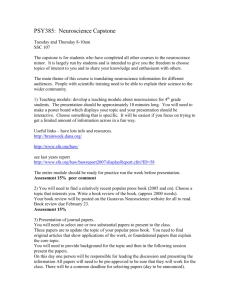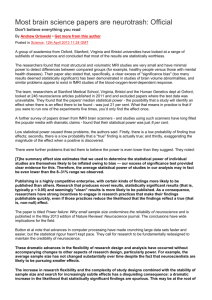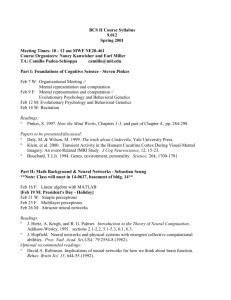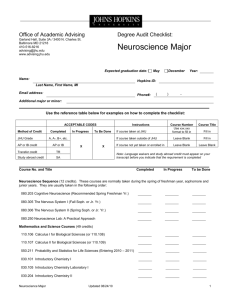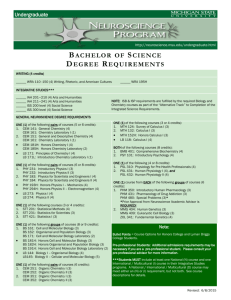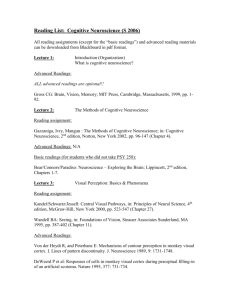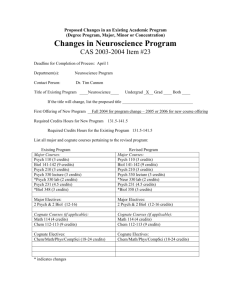I-GNC Core Curriculum Course Descriptions
advertisement
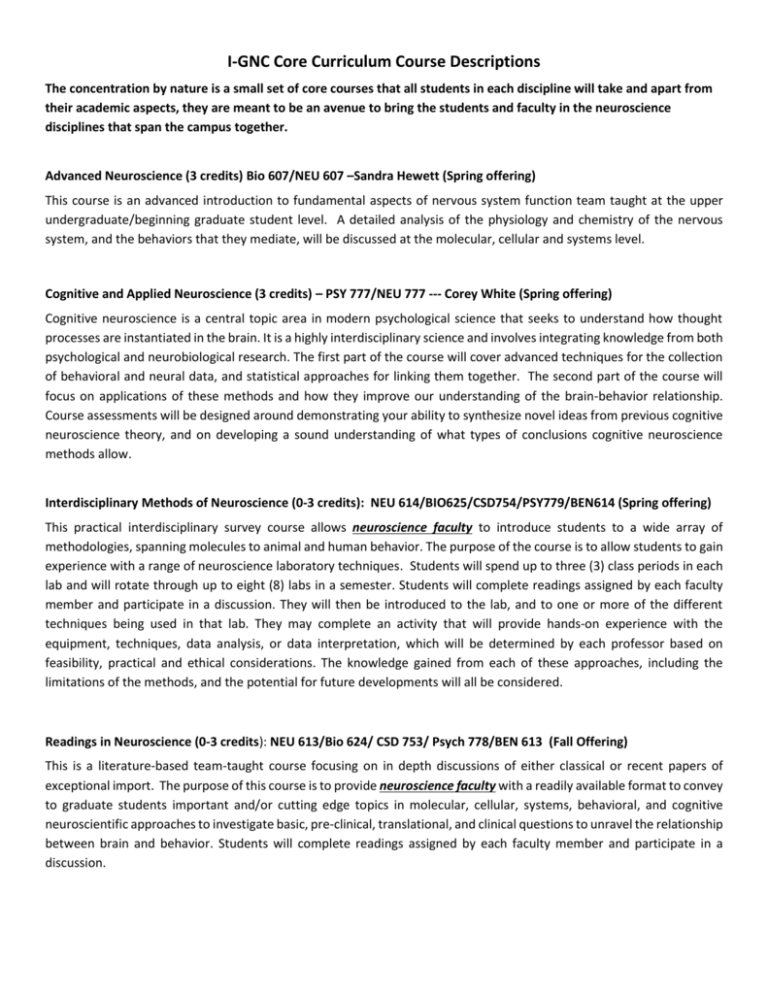
I-GNC Core Curriculum Course Descriptions The concentration by nature is a small set of core courses that all students in each discipline will take and apart from their academic aspects, they are meant to be an avenue to bring the students and faculty in the neuroscience disciplines that span the campus together. Advanced Neuroscience (3 credits) Bio 607/NEU 607 –Sandra Hewett (Spring offering) This course is an advanced introduction to fundamental aspects of nervous system function team taught at the upper undergraduate/beginning graduate student level. A detailed analysis of the physiology and chemistry of the nervous system, and the behaviors that they mediate, will be discussed at the molecular, cellular and systems level. Cognitive and Applied Neuroscience (3 credits) – PSY 777/NEU 777 --- Corey White (Spring offering) Cognitive neuroscience is a central topic area in modern psychological science that seeks to understand how thought processes are instantiated in the brain. It is a highly interdisciplinary science and involves integrating knowledge from both psychological and neurobiological research. The first part of the course will cover advanced techniques for the collection of behavioral and neural data, and statistical approaches for linking them together. The second part of the course will focus on applications of these methods and how they improve our understanding of the brain-behavior relationship. Course assessments will be designed around demonstrating your ability to synthesize novel ideas from previous cognitive neuroscience theory, and on developing a sound understanding of what types of conclusions cognitive neuroscience methods allow. Interdisciplinary Methods of Neuroscience (0-3 credits): NEU 614/BIO625/CSD754/PSY779/BEN614 (Spring offering) This practical interdisciplinary survey course allows neuroscience faculty to introduce students to a wide array of methodologies, spanning molecules to animal and human behavior. The purpose of the course is to allow students to gain experience with a range of neuroscience laboratory techniques. Students will spend up to three (3) class periods in each lab and will rotate through up to eight (8) labs in a semester. Students will complete readings assigned by each faculty member and participate in a discussion. They will then be introduced to the lab, and to one or more of the different techniques being used in that lab. They may complete an activity that will provide hands-on experience with the equipment, techniques, data analysis, or data interpretation, which will be determined by each professor based on feasibility, practical and ethical considerations. The knowledge gained from each of these approaches, including the limitations of the methods, and the potential for future developments will all be considered. Readings in Neuroscience (0-3 credits): NEU 613/Bio 624/ CSD 753/ Psych 778/BEN 613 (Fall Offering) This is a literature-based team-taught course focusing on in depth discussions of either classical or recent papers of exceptional import. The purpose of this course is to provide neuroscience faculty with a readily available format to convey to graduate students important and/or cutting edge topics in molecular, cellular, systems, behavioral, and cognitive neuroscientific approaches to investigate basic, pre-clinical, translational, and clinical questions to unravel the relationship between brain and behavior. Students will complete readings assigned by each faculty member and participate in a discussion.




